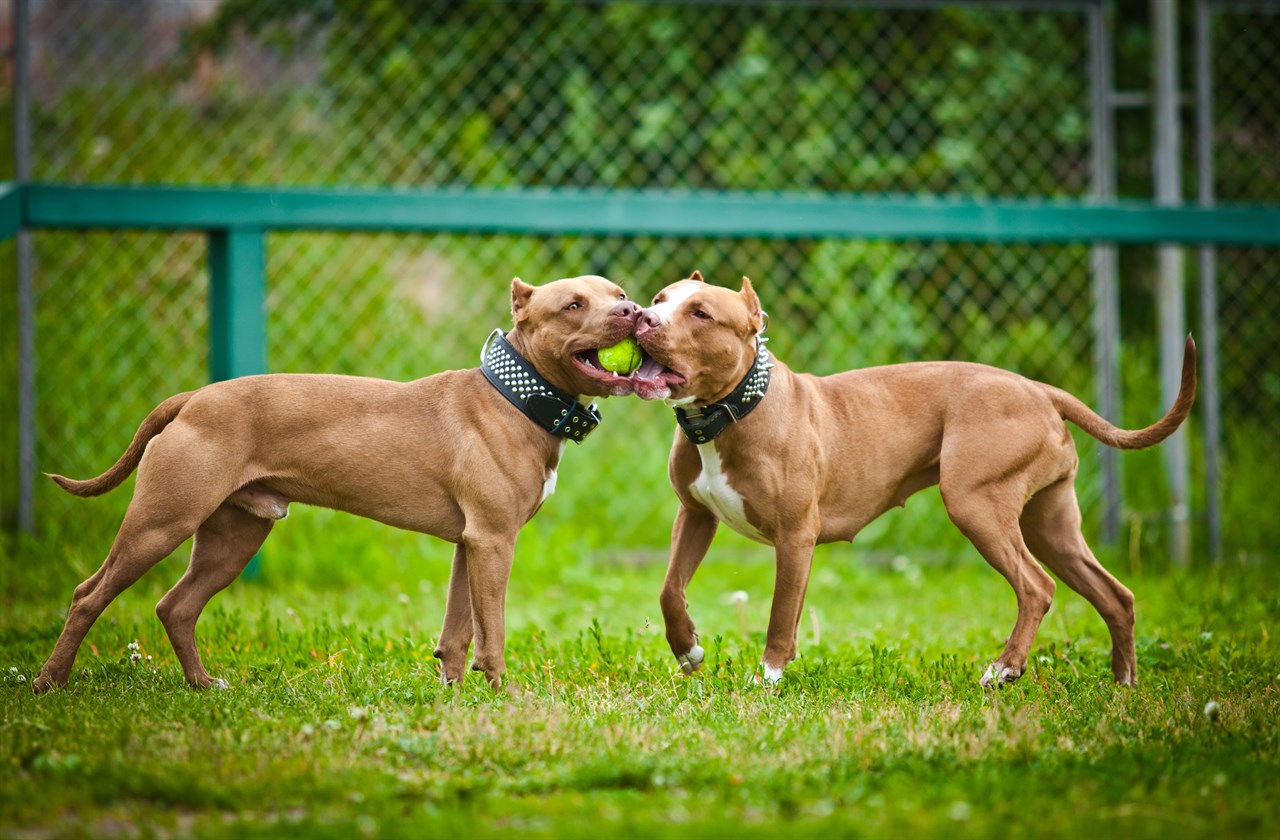Feeding Habits and Food Requirements of the American Pit Bull Terrier

Maintaining a healthy and balanced diet is essential for the well-being of the American Pit Bull Terrier (APBT). Here's a guide to their feeding habits and dietary requirements.
Age and Life Stage
The nutritional needs of Pit Bulls vary depending on their age and life stage. Puppies, adults, and seniors have different dietary requirements. Choose a high-quality dog food formulated for their specific life stage.
Protein-Rich Diet
Pit Bulls are known for their muscular build, and a protein-rich diet is essential for their overall health. Look for dog foods with a high-quality source of animal protein as the primary ingredient.
Balanced Nutrition
A well-balanced diet includes proteins, fats, carbohydrates, vitamins, and minerals. Ensure that the dog food you choose meets the nutritional standards set by reputable organisations, such as the Association of American Feed Control Officials (AAFCO).
Portion Control
Pit Bulls can be prone to obesity, so it's important to practise portion control. Follow the feeding guidelines provided on the dog food packaging and monitor your dog's weight regularly.
Regular Feeding Schedule
Establish a consistent feeding schedule for your Pit Bull. Most dogs thrive on two meals per day, but individual preferences may vary. Regular feeding times contribute to a stable routine.
Avoiding Human Foods
Certain human foods can be toxic to dogs. Avoid feeding your Pit Bull chocolate, onions, garlic, grapes, and other foods that can be harmful. Consult with your veterinarian if you're unsure about the safety of a particular food.
Fresh Water Availability
Ensure that your Pit Bull always has access to fresh and clean water. Hydration is crucial for their overall health, especially for active breeds like the APBT.
Monitoring Treats and Snacks
While treats and snacks can be used as rewards, be mindful of the calories they contribute. Excessive treats can lead to weight gain. Opt for healthy treats or use a portion of their daily food for training rewards.
Addressing Allergies and Sensitivities
Some Pit Bulls may have food allergies or sensitivities. If you notice signs such as itching, digestive issues, or changes in coat quality, consult with your veterinarian to identify and address potential food issues.
Consulting with a Veterinarian
Your veterinarian is a valuable resource for establishing a suitable diet for your Pit Bull. They can provide guidance on portion sizes, nutritional requirements, and address any specific health concerns.
Conclusion
Feeding your American Pit Bull Terrier a balanced and nutritious diet is essential for their overall health and well-being. Tailor their food to their age, monitor portion sizes, and consult with your veterinarian to ensure your Pit Bull receives the best possible nutrition.
American Pit Bull Terrier puppies for sale
- Find American Pit Bull Terrier puppies for sale in ACT
- Find American Pit Bull Terrier puppies for sale in NSW
- Find American Pit Bull Terrier puppies for sale in NT
- Find American Pit Bull Terrier puppies for sale in QLD
- Find American Pit Bull Terrier puppies for sale in SA
- Find American Pit Bull Terrier puppies for sale in TAS
- Find American Pit Bull Terrier puppies for sale in VIC
- Find American Pit Bull Terrier puppies for sale in WA